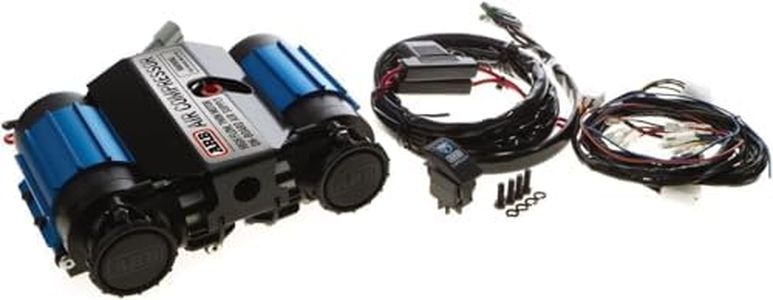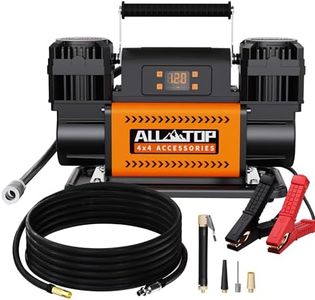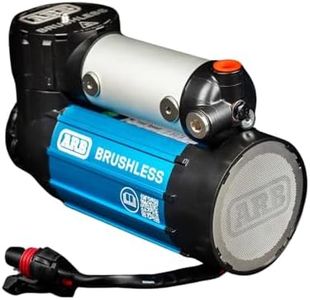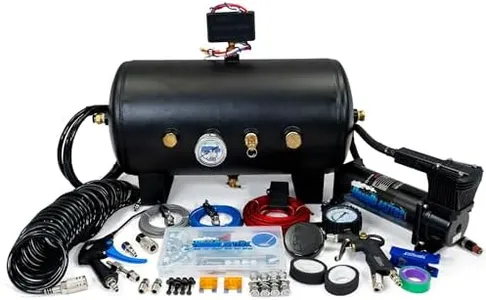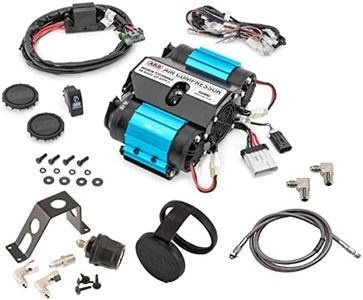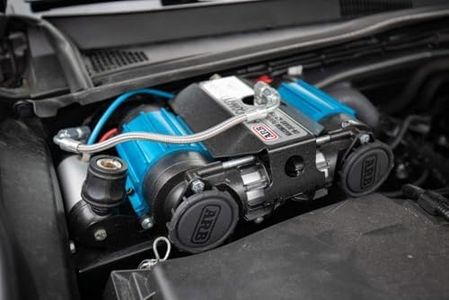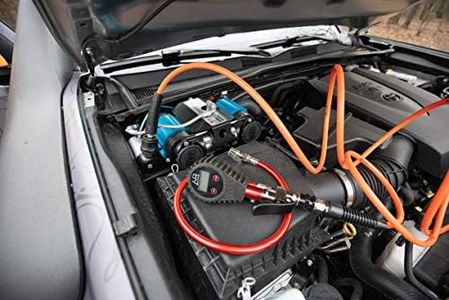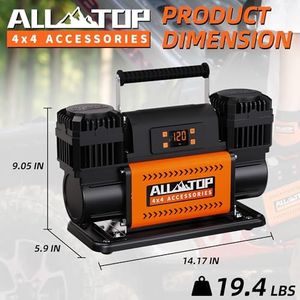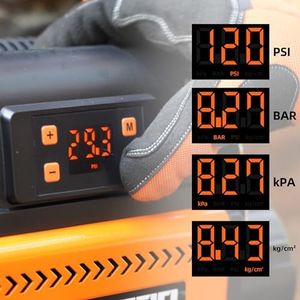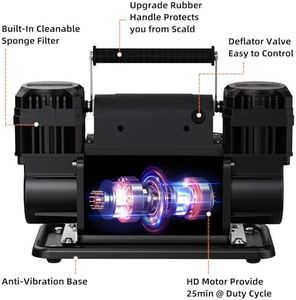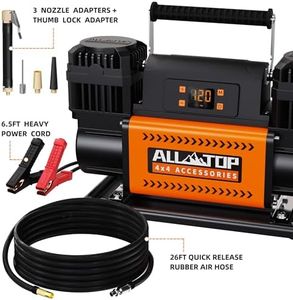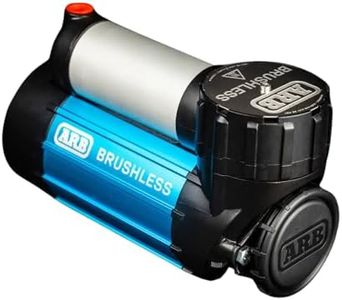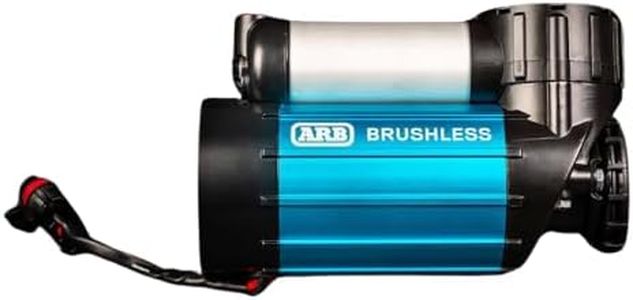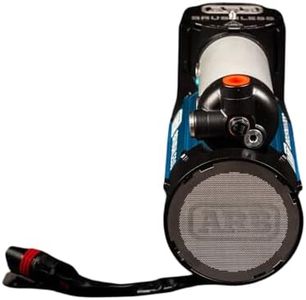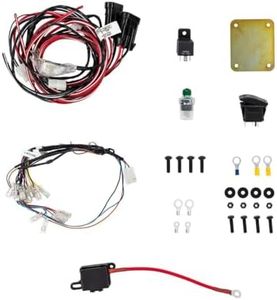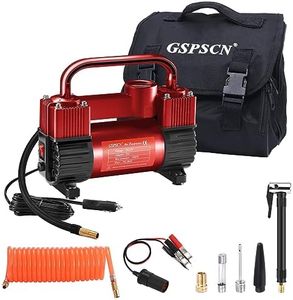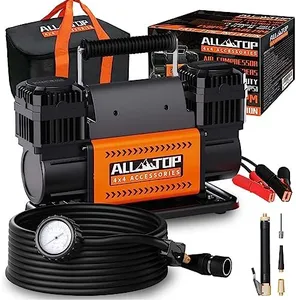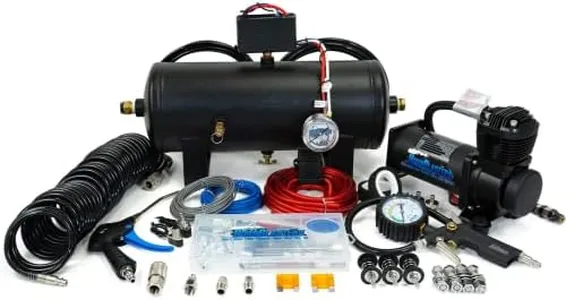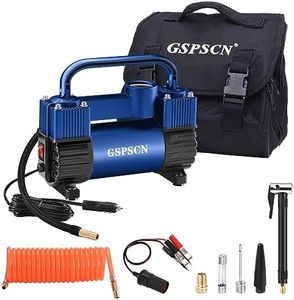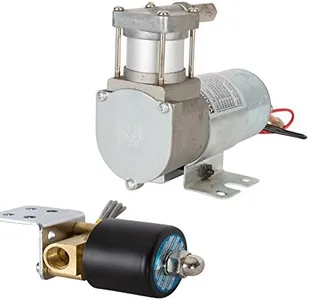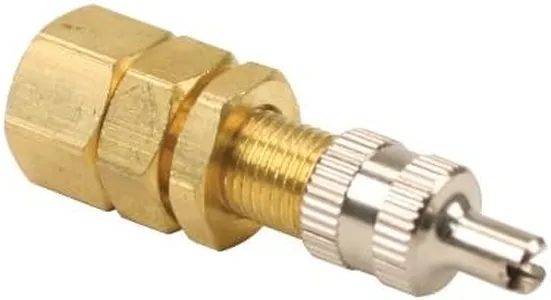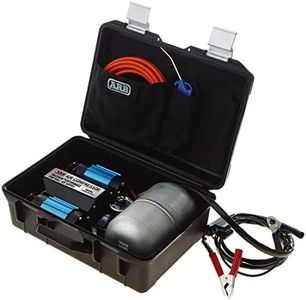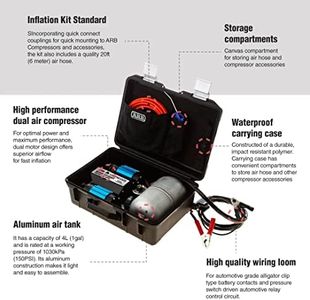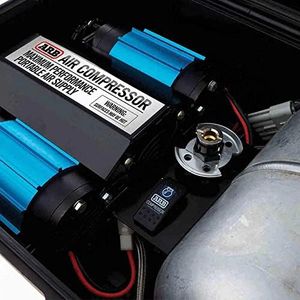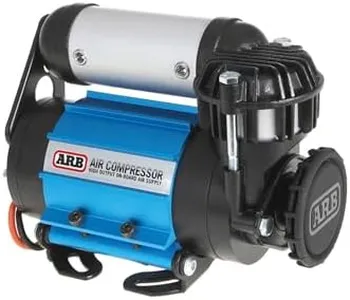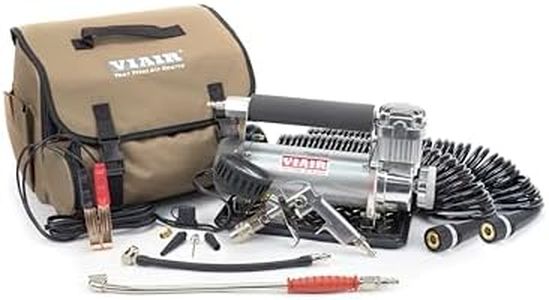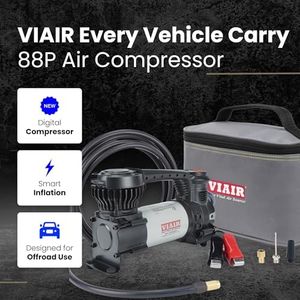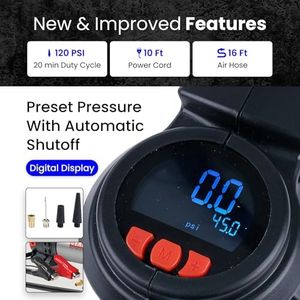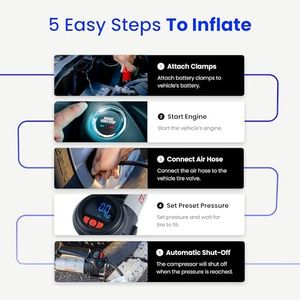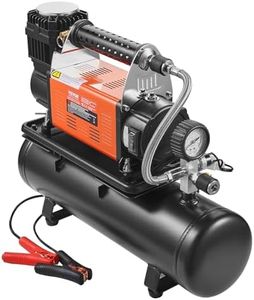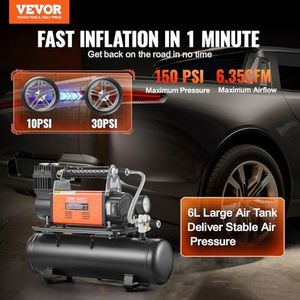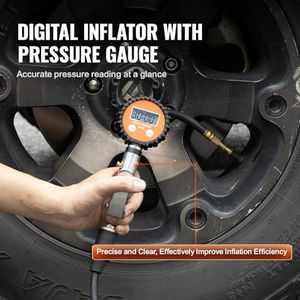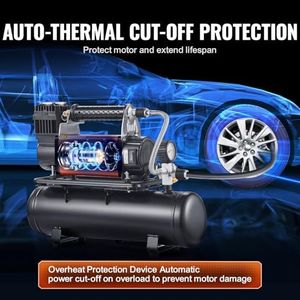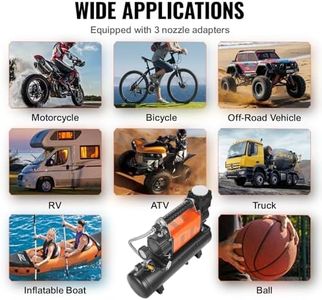10 Best Heavy Duty 12 V Air Compressor 2026 in the United States
Winner
ARB INFLATION3 Twin High Performance Air Compressor CKMTA12 and Extension Hardware for Easy Installation and Connection in a New Printed Box, Ideal for Lockers, Horns, Tire Inflation and Air Tools
The ARB INFLATION3 is a strong choice for anyone needing a heavy-duty 12V air compressor, especially if you want to inflate tires, operate air lockers, horns, or pneumatic tools. It stands out with its twin motor, dual cylinder design that delivers one of the highest air flow rates in its class at about 6.16 CFM, which means it can quickly fill tires or power tools. The compressor is built for durability, featuring water-sealed motors, high-quality bearings, and thermal protection to prevent overheating, so it’s designed to last and operate quietly.
Most important from
1253 reviews
ALL-TOP 12V Air Compressor w/LCD Control Panel to Preset Target Pressure, 150PSI 12.35CFM Air Pump Inflator for Overland (Dual Cylinder)
The ALL-TOP 12V Air Compressor is designed for heavy-duty use, making it a solid choice if you need reliable tire inflation for big vehicles like off-road trucks or overlanding rigs. It can deliver a strong maximum pressure of 150 PSI with an airflow rate of 12.35 CFM, which is quite powerful for a 12-volt compressor. This means it can quickly inflate large tires and handle tough jobs without overheating easily, thanks to its built-in thermal and electrical protections. One standout feature is its digital LCD control panel that lets you preset the target pressure, so it automatically stops when the desired PSI is reached—helpful to avoid over or under-inflation.
Most important from
851 reviews
ARB CKBLA12 12V Brushless Air Compressor Premium On Board Motor boasts 1.5X in output. Ideal for faster tire inflating time and 4x4 off road adventures - 2025 Launched.
The ARB CKBLA12 12V Brushless Air Compressor is designed for heavy-duty use, especially suited for off-road enthusiasts and those who need quick tire inflation. It offers a 50% increase in output compared to ARB's older models, inflating tires faster and saving time. The built-in active cooling system and electronic speed control help keep the compressor running efficiently and protect it from overheating or voltage issues, ensuring reliability for extended use.
Most important from
23 reviews
Top 10 Best Heavy Duty 12 V Air Compressor 2026 in the United States
Winner
ARB INFLATION3 Twin High Performance Air Compressor CKMTA12 and Extension Hardware for Easy Installation and Connection in a New Printed Box, Ideal for Lockers, Horns, Tire Inflation and Air Tools
ARB INFLATION3 Twin High Performance Air Compressor CKMTA12 and Extension Hardware for Easy Installation and Connection in a New Printed Box, Ideal for Lockers, Horns, Tire Inflation and Air Tools
Chosen by 1210 this week
ALL-TOP 12V Air Compressor w/LCD Control Panel to Preset Target Pressure, 150PSI 12.35CFM Air Pump Inflator for Overland (Dual Cylinder)
ALL-TOP 12V Air Compressor w/LCD Control Panel to Preset Target Pressure, 150PSI 12.35CFM Air Pump Inflator for Overland (Dual Cylinder)
ARB CKBLA12 12V Brushless Air Compressor Premium On Board Motor boasts 1.5X in output. Ideal for faster tire inflating time and 4x4 off road adventures - 2025 Launched.
ARB CKBLA12 12V Brushless Air Compressor Premium On Board Motor boasts 1.5X in output. Ideal for faster tire inflating time and 4x4 off road adventures - 2025 Launched.
GSPSCN Red Tire Inflator Heavy Duty Double Cylinders, Portable Metal DC 12V Air Compressor - Car Accessories,150PSI Tire Pump with Adapter for Car, Truck, SUV Tires, Dinghy, Air Bed etc
GSPSCN Red Tire Inflator Heavy Duty Double Cylinders, Portable Metal DC 12V Air Compressor - Car Accessories,150PSI Tire Pump with Adapter for Car, Truck, SUV Tires, Dinghy, Air Bed etc
ALL-TOP Air Compressor Kit, Dual Cylinder 12V Portable Inflator 12.35 ft³/Min, Offroad Air Compressor Pump for Truck Tires, Heavy Duty Max 150 PSI for 4x4 Vehicle & RV
ALL-TOP Air Compressor Kit, Dual Cylinder 12V Portable Inflator 12.35 ft³/Min, Offroad Air Compressor Pump for Truck Tires, Heavy Duty Max 150 PSI for 4x4 Vehicle & RV
ARB (CKMTP12) 12V Twin Motor High Performance Portable Air Compressor
ARB (CKMTP12) 12V Twin Motor High Performance Portable Air Compressor
ARB CKMA12 On-Board Air Compressor High Performance 12 Volt for Air Locker Differentials and Tire Inflation
ARB CKMA12 On-Board Air Compressor High Performance 12 Volt for Air Locker Differentials and Tire Inflation
VIAIR 450P-RV Automatic Portable Air Compressor Kit - 150 PSI for RV, Truck, Jeep and SUV Tires - RV Accessories with 1.80 CFM, Silver
VIAIR 450P-RV Automatic Portable Air Compressor Kit - 150 PSI for RV, Truck, Jeep and SUV Tires - RV Accessories with 1.80 CFM, Silver
VIAIR Digital EVC88P - Portable Air Compressor Tire Inflator for Car, Truck, SUV & RV | Preset Automatic Shut Off Feature | 12V Heavy Duty On/Off Road Tire Pump Air Compressor 120 PSI
VIAIR Digital EVC88P - Portable Air Compressor Tire Inflator for Car, Truck, SUV & RV | Preset Automatic Shut Off Feature | 12V Heavy Duty On/Off Road Tire Pump Air Compressor 120 PSI
Our technology thoroughly searches through the online shopping world, reviewing hundreds of sites. We then process and analyze this information, updating in real-time to bring you the latest top-rated products. This way, you always get the best and most current options available.

